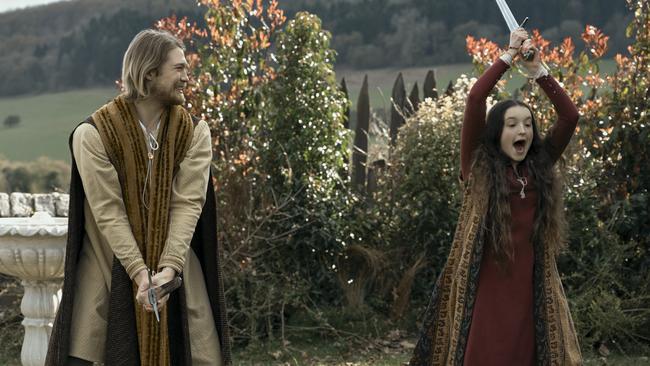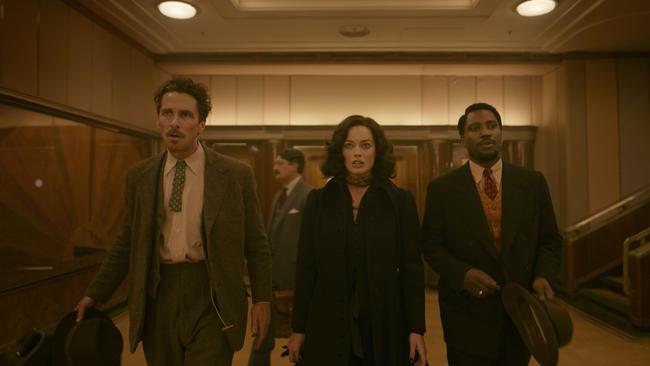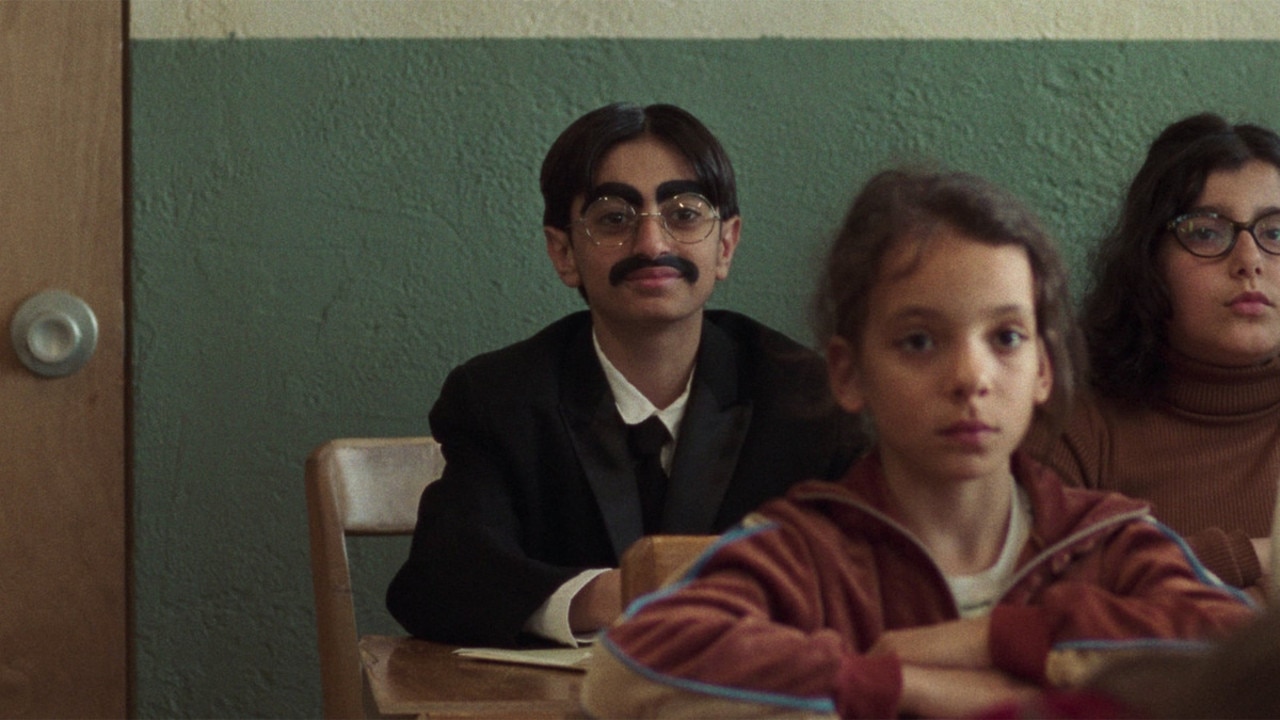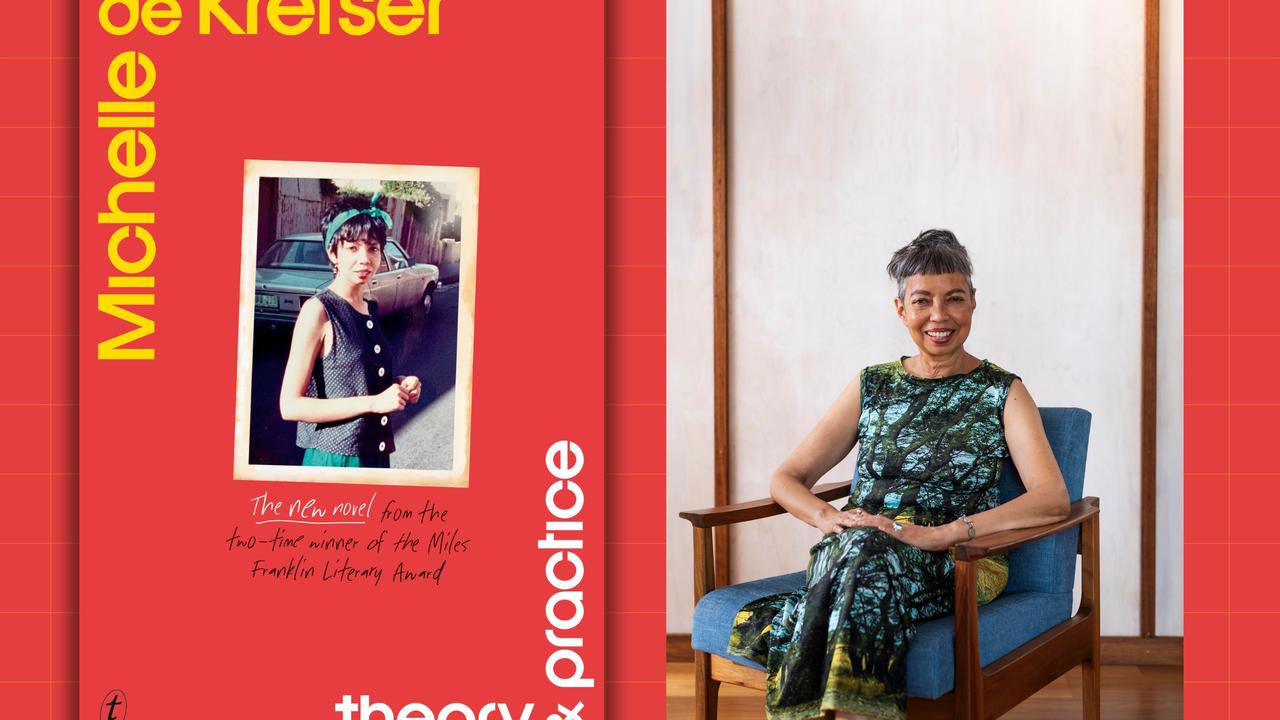Catherine Called Birdy, young woman ponders ‘Hideous Mottled Troll’ and other suitors in comedy-drama
The problem for the young Lady in this satisfying comedy-drama is that going from girl to woman in 13th century England means only a change of ownership, from father to husband.

Catherine Called Birdy (PG)
Amazon Prime
★★★
“Dress like a knight or dress like a lady, the blood will come. You are a woman now.”
This is the no-nonsense advice of nursemaid Morwenna (Lesley Sharp) when her 14-year-old charge Lady Catherine (Bella Ramsey) starts to menstruate.
The problem for the young Lady, nicknamed Birdy for her love of birds, is that going from girl to woman in 13th century England means only a change of ownership, from father to husband.
“Birdy is our only currency,’’ her broke father, Lord Rollo (Andrew Scott) tells his wife Lady Aislinn (Billie Piper). To save their manor they need to find a man “foolish enough to trade his fortune for the prefix of lord”.
This is the set-up for the medieval comedy-drama Catherine Called Birdy, written and directed by Lena Dunham, the creator, writer and star of the hit TV series Girls.
Ramsey, the warlike pre-teen Lady Lyanna in Game of Thrones, is excellent as the rebellious (in the year 1290) girl who must work out how to dodge a conga line of unsuitable suitors.
She succinctly sums up her immediate situation: “Save me from the future.”
Scott, the priest in Fleabag and the best Moriarty yet in Sherlock, is in jocular form as the wastrel father who needs to sell off his daughter but deep down would rather not.
This 108-minute movie is an adaptation of the 1994 children’s novel of the same name by Karen Cushman. The director first read it when she was 10, and described the film as a “passion project”.
Dunham’s script is humorous without losing sight of the lot of women, even noble ones, at the time. When Lady Aislinn, who has had six stillborn children, goes into labour yet again, it’s a PG moment.
The book is told as Birdy’s diary and Dunham makes good use of this epistolary format. When we first meet a character, on-screen text shows us Birdy’s diary entry.
Her father is “Often vain/Usually drunk/Always greedy”. There’s a comic scene where he challenges his accountant to show him any occasion when he has wasted money. Cut to the recent past and a caged Siberian tiger that is as healthy as Monty Python’s parrot.
Birdy has two older brothers, one a knight, the other a monk, and she’d rather be like them. And if she is going to be swept up by any man it would be her uncle George (Joe Alwyn), who is off fighting the Crusades (diary entry: SO HANDSOME).
Birdy uses all sorts of tricks to deter the suitors. Then one comes along (diary entry: “Hideous Mottled Troll”) who likes what he sees.
Sir John Henry Murgaw (Paul Kaye) offers “filthy stinking riches” and will take what he wants unless Birdy can save herself or find a saviour.
This is an entertaining coming-of-age story from a different age. “You have wings, Birdy,’’ advises an older woman (Sophie Okonedo) who has worked marriage to her advantage. “You must learn to harness them and not flap them all about and crash to the floor.”
-
Amsterdam (M)
In cinemas
★★★
American filmmaker David O. Russell is best known for the 2013 movie American Hustle, which was nominated for 10 Oscars but won none. In 1999 he made one of the best war films of the past 25 years, Three Kings, starring George Clooney.
His new film, screwball drama Amsterdam, has a lot going for it. The three leads – Australia’s Margot Robbie, Christian Bale and John David Washington – are a pleasure to watch.
The costume design (Oscar winner Albert Wolsky and JR Hawbaker) and production design (Judy Becker, Oscar-nominated for American Hustle) are first-rate. So is the cinematography (Emmanuel Lubezki, who won consecutive Oscars for Gravity, Birdman and The Revenant).
All of this should combine to make a terrific film but it does not. Russell, writer and director, has a reputation for being a bit of a tyrant on set. He should have tyrannised himself. It’s the meandering script, sloppy direction and clumsy editing that make this 134-minute movie less than a sum of its parts.
The film unfolds between 1918 and 1933 and the set-up grabs the attention. As World War I comes to a close, two wounded American soldiers and a nurse form a friendship pact.
Burt (Bale) and Harold (Washington) are in a military hospital in France. They have shrapnel plucked from their bodies by a nurse named Valerie (Robbie).
After the war, the three of them head to Amsterdam and live life to the full. It’s all song and dance and art. Burt receives a glass eye to replace the one he lost in battle.
Seeing the dead on the battlefield, Harold says, “Makes you realise time is short and love is real, if you know where it is.”
I think Harold and Valerie are lovers but there are no sex scenes. Valerie leaves without saying goodbye. Yet like Bogie and Bergman will always have Paris, this trio will always have Amsterdam.
All of this is dazzlingly quirky. Burt’s glass eye pops out a fair bit. Mike Myers and Michael Shannon are amusing as intelligence agents who are into birdwatching. It has a Wes Anderson feel to it. But Anderson adds an essential ingredient that is missing here: coherence.
When the action moves to the US in 1933, Burt continues his work as a doctor and Harold has become a lawyer. They work together to support war veterans. Burt is married but lives apart from his wife.

The turning point in their lives comes when their former general (Ed Begley Jr), a commander who treated black soldiers with respect, dies on board a ship.
His daughter (an impressive Taylor Swift) suspects foul play. She is right but only long enough for something similar to happen to her.
Burt and Harold are with her when the deed is done and become prime suspects in her murder. Not long after Valerie reappears in their lives. She is not French but American and lives in New Jersey with her rich brother (Rami Malek). From here the three of them must dodge the law while they work out who the real killer or killers are.
“He saw a terrible thing,’’ the general’s daughter says, “and they knew he was going to talk about it.”
That line goes to the important point Russell is trying to make. It’s timely given the change of government in Italy. It’s also unintentionally funny given the director’s reputation.
The plot is loosely based on a political conspiracy, known as the Business Plot or Wall Street Putsch, to overthrow US President Franklin D. Roosevelt and install a dictator.
“There’s a cripple in the White House,’’ one of the plotters says. A cabal of American industrialists want to replace him with someone pro-business like Benito Mussolini.
This is a sliver of American history that has faded into the background, so credit to Russell for highlighting it at a time when the US Capitol invasion is strong in memory.
When the film finally does turn to what it’s really about, proto-fascism, it is at its best, largely thanks to Robert De Niro as the marine general who the plotters think can be their Mussolini. He takes over the screen for the too-brief time he is on it.
I had high hopes for this film but in the end it does not deliver. The three stars do their best with thinly drawn characters. It is nice to look at but it should be more than that.




To join the conversation, please log in. Don't have an account? Register
Join the conversation, you are commenting as Logout